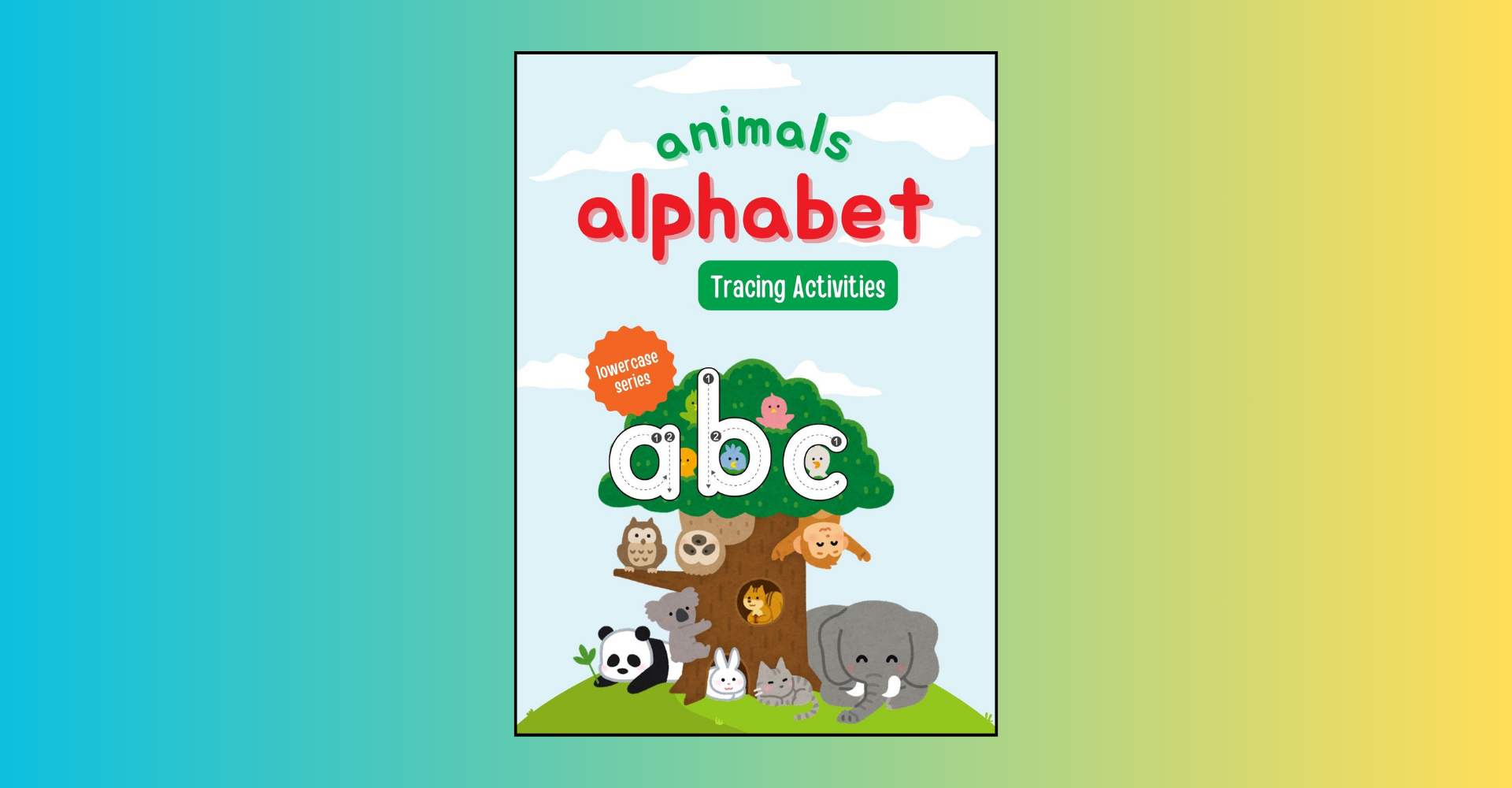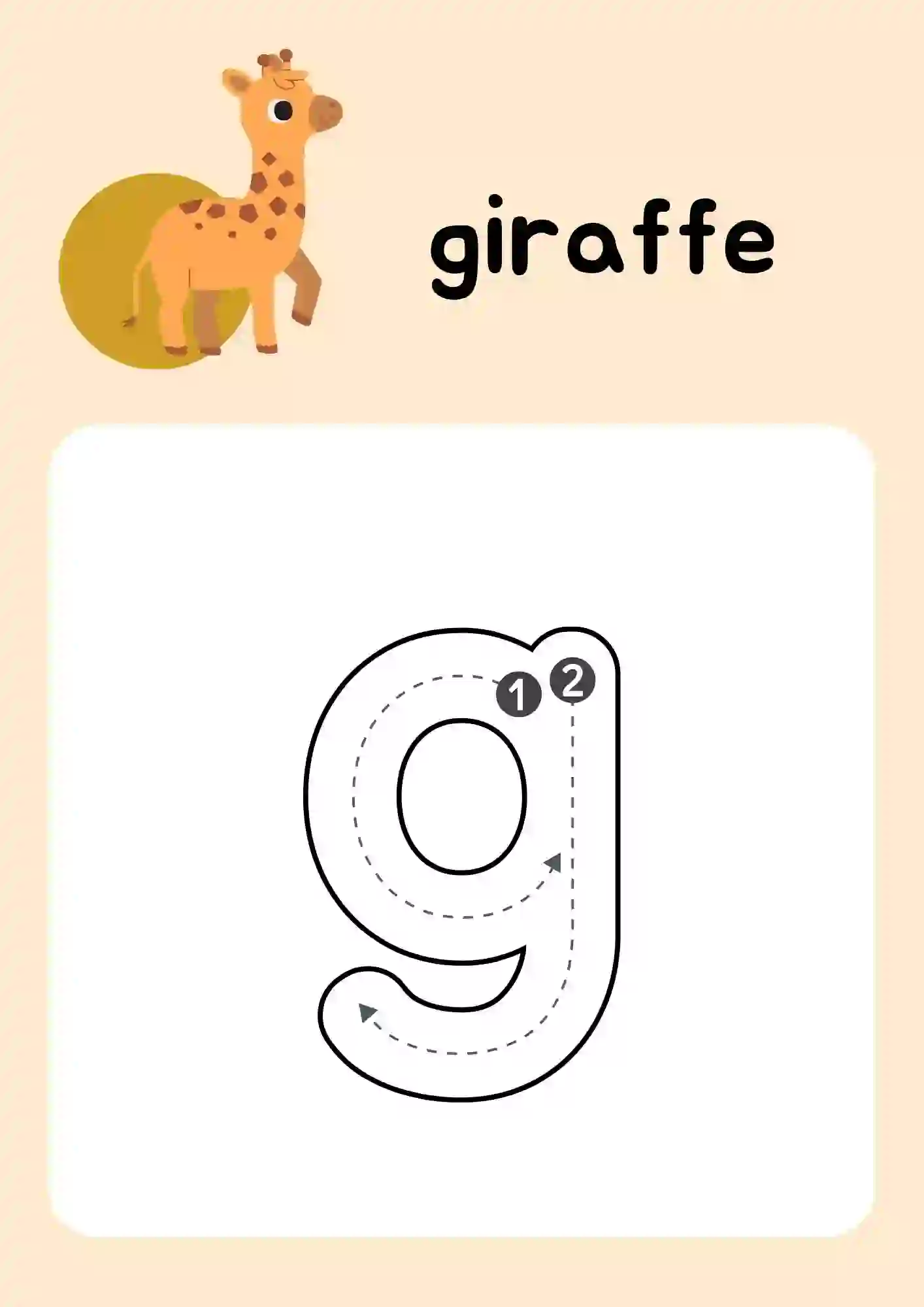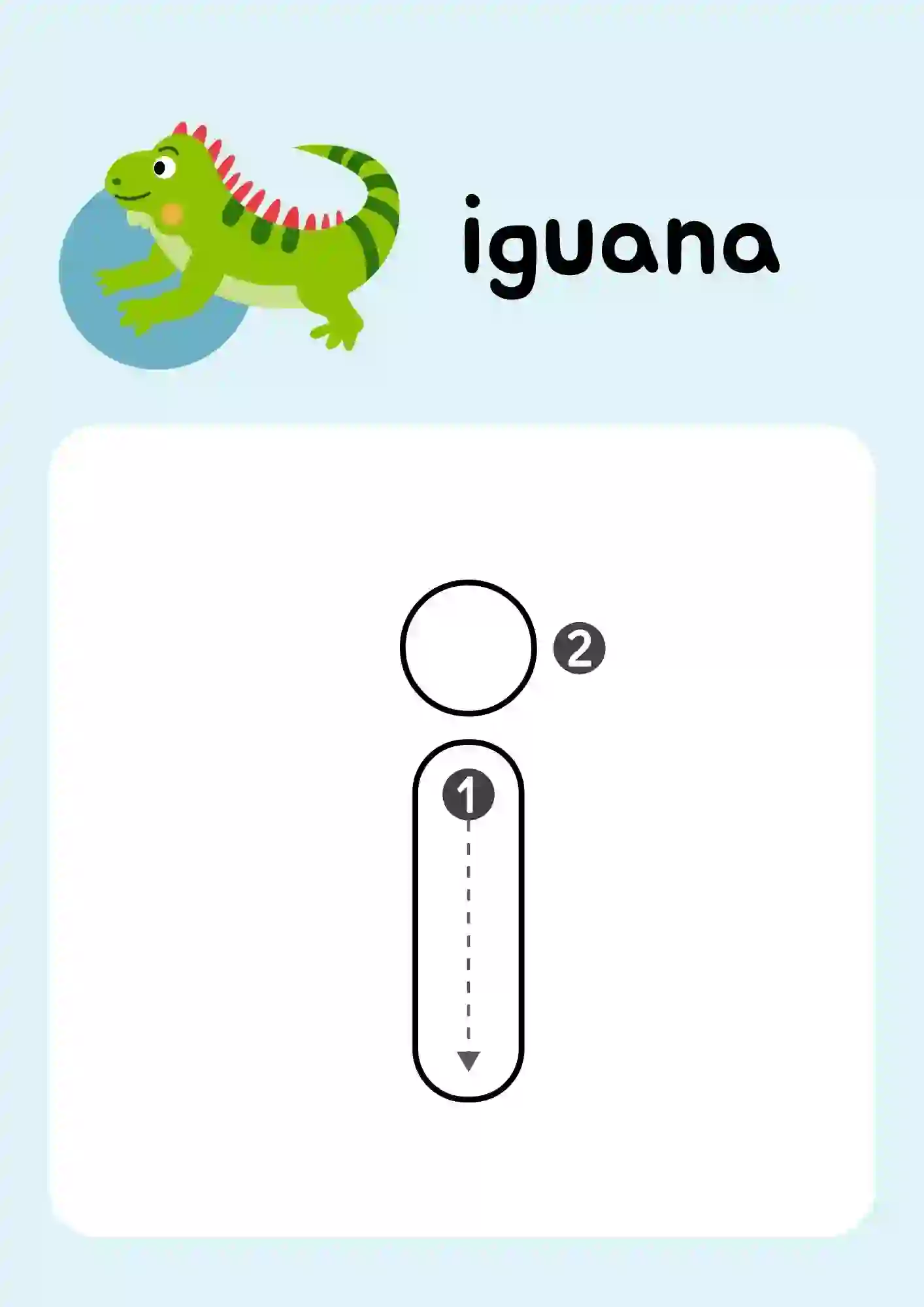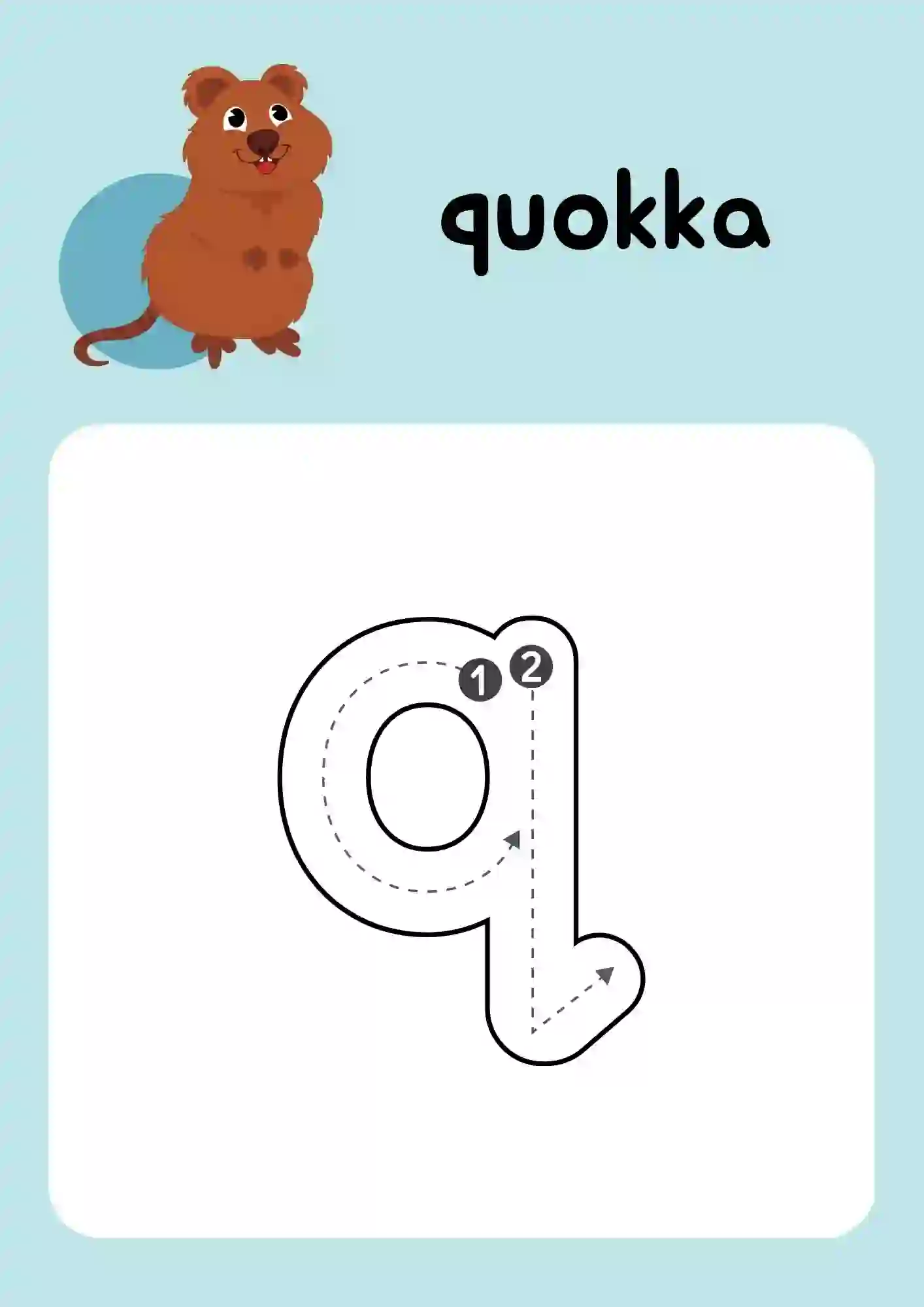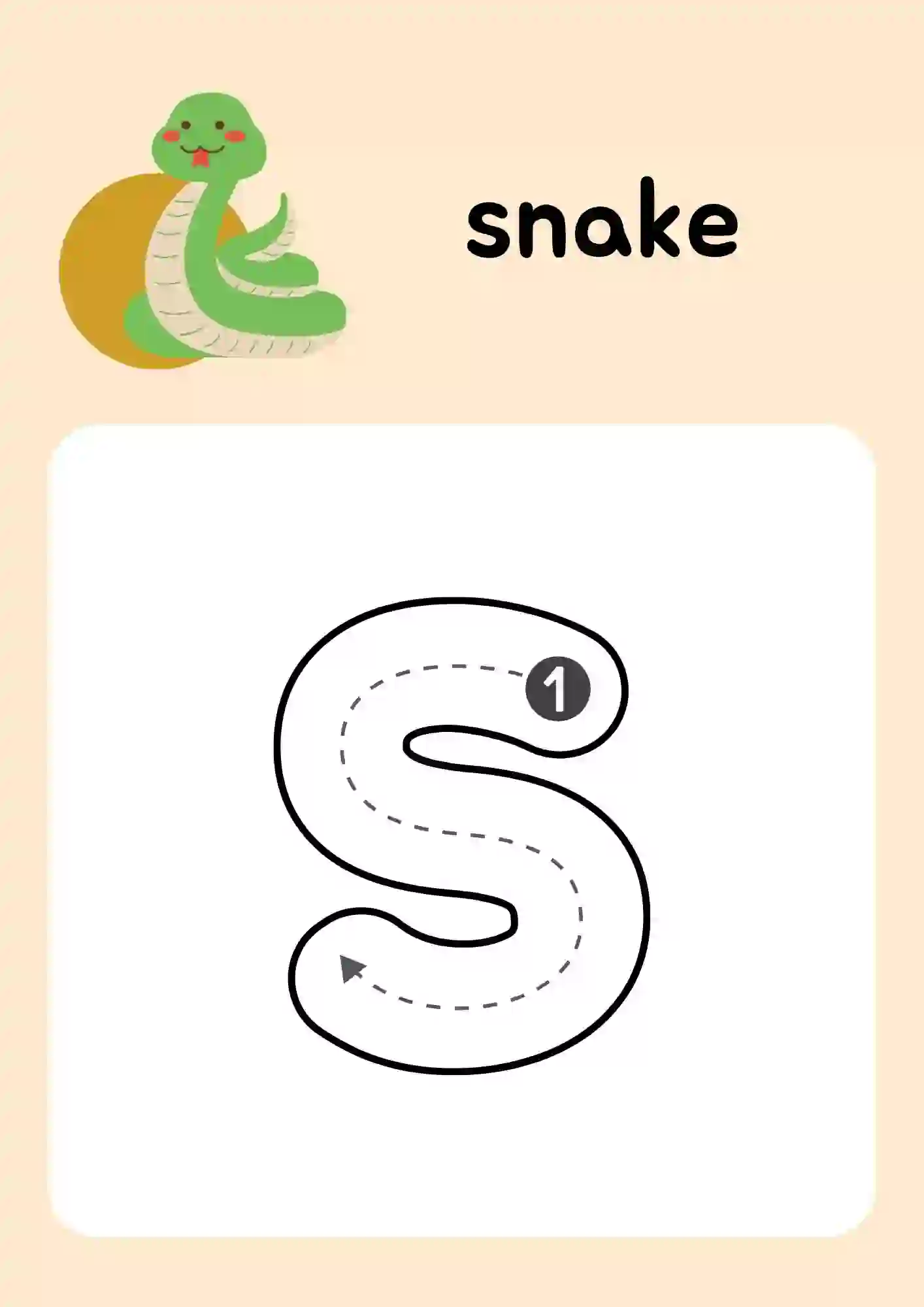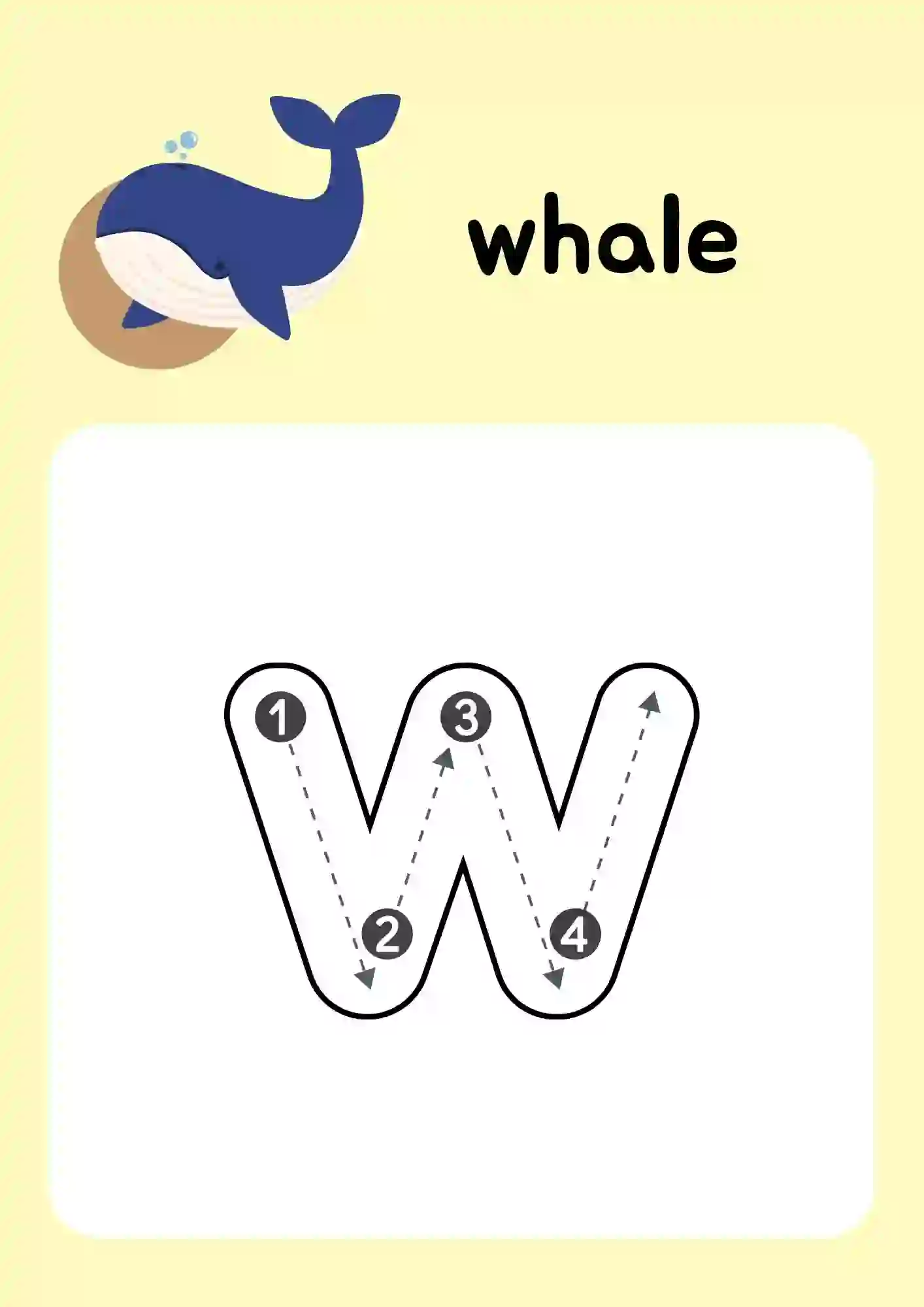Welcome to the world of letters and cute animals! Our “Lower Case Alphabet Tracing Worksheets”. Each of the 26 worksheets has tracing lowercase letters with adorable animal illustrations. From alligators to zebras, these worksheets are packed with fun and educational value.
Lower Case Alphabet Tracing Worksheets Details:
| Feature | Details |
|---|---|
| Format | Downloadable PDF |
| Number of Pages | 26 |
| Content | Lower Case Alphabet Tracing Worksheets For Kindergarten and Nursery. |
| Illustrations | Yes, playful and age-appropriate |
| Suitable For | Nursery, Lkg & Ukg |
| Printable? | Yes |
Features Of Worksheets:
- Interactive Alphabet Learning: Each of the 26 worksheets focuses on a different letter of the alphabet, featuring fun tracing activities that make learning each letter an enjoyable experience.
- Adorable Animal Illustrations: From alligators to zebras, every worksheet comes with a charming animal illustration.
- Letter Recognition: These worksheets help kids get familiar with the shapes and sounds of lower case letters, making it easier for them to recognize and remember each one.
- Tracing the letters: Kids can draw letters with the help of the tracing lines given.
- Animal Knowledge: Each worksheet introduces kids to a different animal, They learn about various creatures.
- Engagement and Focus: The combination of tracing and colorful illustrations keeps kids engaged and focused, turning learning into a fun and immersive activity.
- Confidence Building: Successfully tracing letters and recognizing animals helps build your child’s confidence, encouraging them to keep learning and exploring.
- Creativity Boost: The animal themes inspire creativity, allowing kids to use their imagination as they connect letters to the fun animal characters they trace.
Who is this for?: Our Lower Case Alphabet Tracing Worksheets are suitable for kids in LKG, UKG, Nursery, preschool, and kindergarten, These worksheets provide an excellent foundation for early literacy skills, making them ideal for classroom use, homeschooling, and supplementary learning at home.
Materials Needed:
- Printed copies of all Lower Case Alphabet Tracing Worksheets.
- Crayons or Colored Pencils
- Pencil or Marker: For tracing the letters clearly.
How to Use:
- Introduction to Letters: Begin by introducing the letters. Show the children the corresponding animal illustration to capture their interest.
- Demonstrate Tracing: Show the kids how to trace the lower case letter on the worksheet. Encourage them to watch closely as you demonstrate the correct direction and flow of the strokes.
- Independent Practice: Allow the children to trace the letter independently. Remind them to stay within the lines and to take their time to form each letter correctly.
- Animal Fun: Once they’ve finished tracing, talk about the animal featured on the worksheet. Share fun facts or a short story about the animal to make the learning experience more engaging.
- Interactive Discussion: Ask the children questions about the animal, such as where it lives or what it eats. This encourages them to think and engage more deeply with the material.
- Creative Activities: Follow up the tracing with a related art project, like drawing the animal or creating a craft. This helps reinforce the letter and the animal connection while sparking their creativity.
Tips:
- Tracing Guides: For children who need extra help, provide tracing guides or dotted lines to follow, making it easier for them to learn the correct letter formations.
- Advanced Practice: For more, introduce uppercase letter tracing alongside the lowercase letters to expand their skills.
- Multisensory Learning: Include tactile elements, such as tracing letters in sand or using finger paint, to engage different senses and enhance the learning experience.
- Interactive Activities: Pair tracing activities with interactive games, such as matching letters with their corresponding animal names.
- Reward System: Implement a reward system where children earn stickers or small prizes for completing worksheets, motivating them to practice more.
Additional Activities:
- Alphabet Treasure Hunt: Organize a treasure hunt where children search for objects starting with each letter of the alphabet around the classroom or home.
- Animal Alphabet Book: Create a class or home-made alphabet book. Each page features a letter and its corresponding animal, with children contributing their traced letters and colored illustrations.
- Letter Songs and Rhymes: Sing alphabet songs or recite rhymes that emphasize letter sounds and shapes. Incorporate movement and dance to make it more engaging.
- Alphabet Craft Time: Have kids create letter crafts using various materials like paper, fabric, or clay. Each craft can represent the letter and an associated animal.
- Storytime with Letters: Read stories that emphasize the alphabet and animals. Pause to highlight and discuss the letters and sounds featured in the story.
Download the PDF File Here:
Click To Download the Lower Case Alphabet Tracing Worksheets PDF
How to Print:
- Get the PDF: Start by clicking the link to download the PDF files of the worksheets.
- Set up Printing: Make sure your printer is all setup. You can adjust the settings like paper size, whether it’s portrait or landscape, and how clear you want the print to be.
- Check Before You Print: Take a print preview. To make sure everything looks just right before you hit print.
- Print: Once you’re happy with how it looks, go ahead and hit that print button.
Tips for Parents and Educators:
- Celebrate Achievements: Praise children for their efforts and progress. Celebrate every small victory to build their confidence and motivation. When they feel good about their accomplishments, they are more likely to stay engaged and eager to learn.
- Make Practice a Habit: Encourage regular practice by incorporating tracing activities into daily routines. You can add these activities to morning work, quiet time, or even as a fun pre-bedtime activity. Consistency helps children develop their skills steadily.
- Engage with Interactive Learning: Combine tracing with interactive storytelling, puppet shows, or educational videos that feature the alphabet and corresponding animals. This makes learning more dynamic and fun, helping children stay interested and absorb information better.
- Get Parents Involved: Involve parents in the learning process by providing them with copies of worksheets and suggesting at-home activities that reinforce letter recognition and tracing skills. When parents are part of the journey, children receive consistent support both at school and at home.
- Create a Learning-Friendly Environment: Set up a designated space for learning activities at home or in the classroom. Ensure it is well-lit, quiet, and free from distractions. A comfortable and organized environment helps children focus better and enjoy their learning time.
- Use Fun Materials: Give them variety of materials like colorful markers, glitter pens, and textured paper to make tracing activities more engaging. Children are more likely to participate enthusiastically when the materials are visually appealing and fun to use.
- Set Realistic Goals: Set achievable goals for each child based on their individual pace and abilities. Celebrate when they reach these milestones, and gently encourage them to aim for the next step. This approach keeps them motivated without feeling overwhelmed.
- Incorporate Movement: Include activities that involve physical movement, such as tracing letters in the air with their fingers, using sidewalk chalk for large-scale tracing, or even using their whole body to form letters. Movement can enhance learning and make it more memorable.
Common Mistakes and Solutions:
Letter Reversal:
- Challenge: Children often reverse letters, like writing ‘b’ as ‘d’.
- Solution: Provide visual cues, such as charts or cards showing the correct letter formation. Practice tracing with guidance to help them write in correct way.
Inconsistent Pressure:
- Challenge: Kids may apply uneven pressure while tracing, resulting in jagged or uneven lines.
- Solution: Encourage them to use a light, steady hand. Practice using different writing tools, like pencils, markers, or crayons, to help them develop better control and consistency.
Disinterest in Repetition:
- Challenge: Some children may get bored with repetitive tracing activities.
- Solution: Keep things interesting by mixing in other activities. Alternate tracing with coloring, drawing, and interactive games to maintain their engagement and enthusiasm.
Difficulty with Fine Motor Skills:
- Challenge: Some kids struggle with the fine motor skills needed for tracing.
- Solution: Provide activities that strengthen fine motor skills, such as playing with clay, stringing beads, or using tweezers to pick up small objects. These activities can help improve their control and precision. Also they use lacing worksheets to help with these skills.
Lack of Focus:
- Challenge: Children might find it hard to concentrate on tracing tasks for long periods.
- Solution: Break down tracing activities into shorter, manageable sessions. Incorporate breaks and let them move around to keep their energy levels up. Use timers to set clear start and finish times for each session.
Frustration with Mistakes:
- Challenge: Kids can become easily frustrated when they make mistakes while tracing.
- Solution: Encourage a positive attitude towards mistakes. Remind them that making mistakes is a part of learning. Offer praise for their effort and progress, no matter how small, to build their confidence and persistence.
Leave a Comment: Share your thoughts, experiences, and any suggestions you have in the comments section below. Your feedback helps us improve and create resources that best support your child’s learning journey.
Love from LkgWorksheets!
